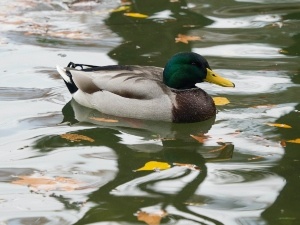
Any change in breathing, like raspy breathing, from you, your kids, or even your pets will usually sound alarm bells in your head.
This article looks into why your duck’s breathing has changed and has become raspy
Table of Contents
Duck raspy breathing:
Raspy breathing sounds hoarse, rough, or strained. This will usually be uncomfortable to you and can happen because of a variety of reasons, but what about when this happens to your duck?
Here is why your duck’s breathing may suddenly sound very raspy:
Blockage:
One of the simplest reasons why your bird’s breathing has suddenly become raspier may be that the bird has something stuck in its respiratory system.
Ducks use their bills to dig and to feed, soon enough something that your bird was rummaging through may get into the bird’s mouth or nares and can travel into the bird’s respiratory system causing a blockage.
Your bird’s respiratory system is quite fragile so even the smallest of things can irritate it.
Anything from seeds to debris can get stuck in the bird’s respiratory system and cause the breathing problems that you may be seeing in your bird.
What to do:
You can check to see if there is actually something stuck in your bird’s respiratory system.
To do this, grab the bird and look into the bird’s mouth and nares to see if there is anything in there causing an obstruction. Using a flashlight will help you better see what is going on.
Hopefully, if there is something causing an obstruction, it isn’t too deep into the bird’s respiratory system yet.
If there is something stuck then you can give the bird a bowl with water deep enough that the bird can dunk its head in and clear its nares.
Avoid trying to remove the obstruction with forceps as the bird’s respiratory system is sensitive and you can accidentally hurt the bird.
You can alternatively take the bird to the vet.
Illness:
Another reason why your bird’s breath may sound raspy may be because the bird is ill.
Illnesses can cause internal pressure in your bird’s body and this can make your bird’s breathing sound raspy. Or, fungal spores can find their way into your bird’s respiratory system and cause breathing issues.
Other signs of a respiratory illness in your bird include watery eyes, sneezing, wheezing, dullness, nasal discharge, ruffled feathers, and listlessness.
What to do:
It may be hard to pinpoint what condition your bird has if you are not a vet. You’d have to take note of the other symptoms that your bird has and go from there.
This may become a lengthy process so it’s recommended that you rather take your bird to the vet, or better yet an avian vet.
The vet will be able to examine the bird, find the reason behind the raspy breathing and offer you a solution
If you can’t immediately get the bird to the vet then it is recommended that you isolate the bird.
This will keep the bird from becoming stressed because of all the other birds around her and this will help to keep the illness from spreading if the illness is contagious.
If you enjoyed this article then you may also be interested in other bird related articles. Here are some articles that you may be interested in: Why Does My Duck Keep Sitting Down?, How To Unclog A Ducks Nose, Baby Duck Raspy Breathing,

